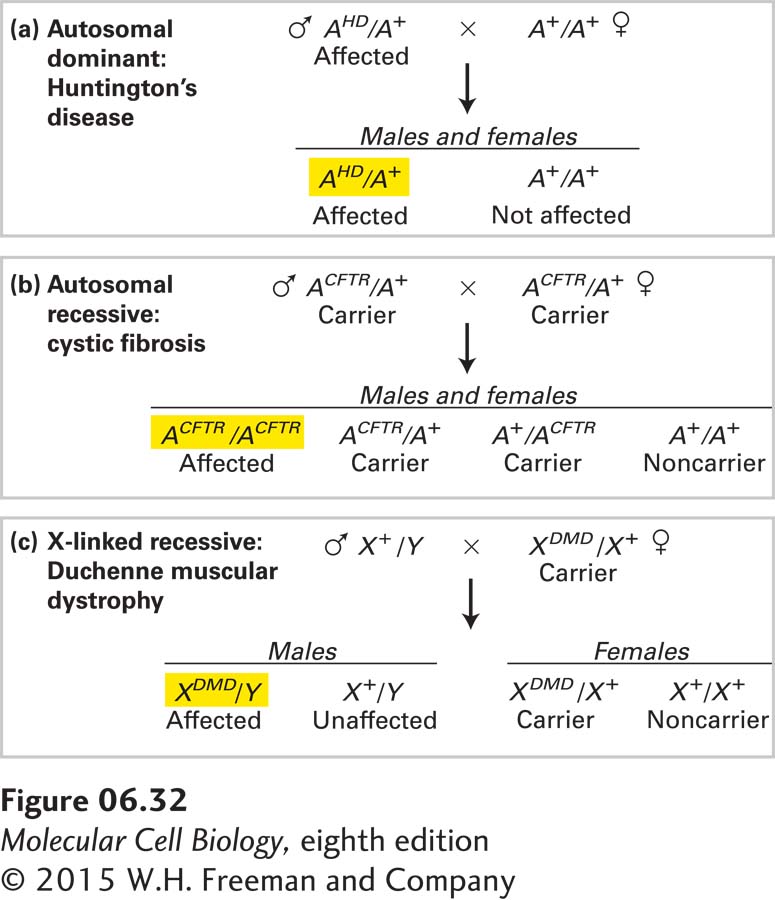
FIGURE 6- 32 Three common inheritance patterns for human monogenic diseases. Wild- type autosomes (A) and sex chromosomes (X and Y) are indicated by superscript plus signs. (a) In an autosomal dominant disorder such as Huntington’s disease, only one mutant allele is needed to confer the disease. If either parent is heterozygous for the mutant HD allele, his or her children have a 50 percent chance of inheriting the mutant allele and getting the disease. (b) In an autosomal recessive disorder such as cystic fibrosis, two mutant alleles must be present to confer the disease. Both parents must be heterozygous carriers of the mutant CFTR gene for their children to be at risk of being affected or being carriers. (c) An X- linked recessive disease such as Duchenne muscular dystrophy is caused by a recessive mutation on the X chromosome and exhibits the typical sex- linked segregation pattern. Males born to mothers heterozygous for a mutant DMD allele have a 50 percent chance of inheriting the mutant allele and being affected. Females born to heterozygous mothers have a 50 percent chance of being carriers.
[Leave] [Close]